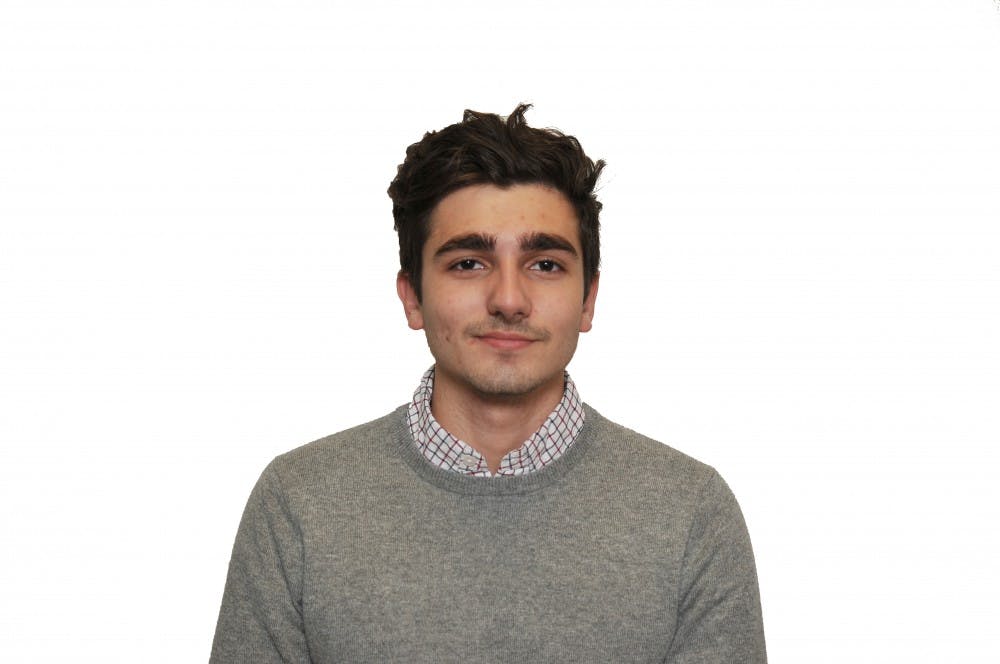When I was younger, Easter was one of my favorite holidays. I loved the egg hunts, and the giant meal we would have for dinner was always delicious. For my family, celebrating Easter never really revolved around the religious aspects, but it became more about simply celebrating the holiday together. This past weekend though, as I studied for midterms and did homework, Easter didn’t feel like Easter anymore.
I’ve never considered myself a very religious person, and the only things that kept me from breaking all ties I have with Christianity were my parents. Both of them were born into Catholic families that made religion a major priority, and so it became a part of their daily lives. Over time though, our family’s dedication to religion has certainly waned, as going to church became less frequent and discussions about Catholicism, the Bible or God seemed to fade away.
Since coming to college, I haven’t been dragged to church by my parents on Christmas and Easter, I haven’t had to say grace before dinner and I simply haven’t had a reason to include faith in my life anymore. I wouldn’t say that Penn as an institution has intentionally caused this change, as no course or teacher would tell a student to expunge their faith. Yet being in such a secular environment with very few daily reminders of religion makes it difficult to find space for it, unless one has a more than moderately strong commitment to one’s faith.
That being said, there are numerous Penn groups and institutions that emphasize faith and provide spaces where one can practice his or her religion. From Hillel to the PRISM interfaith group, Penn does an incredible job at making sure that any spiritual or religious accommodations are there for its students. On top of that, students who have any concerns or questions about their faith can go to the Office of the Chaplain, which has an incredibly caring and comfortable atmosphere.
For me, however, without that push from my family to invest more time in my faith, I could not maintain any real religiosity that I may have experienced when I was younger. College has helped me learn how easily I’ve come to accept the decreased presence of religion in my life. Therefore it’s not as if I’ve been undergoing an existential crisis, but sometimes it surprises me how I’ve gotten to a point where holidays like Easter and Christmas have lost their religious importance to me.
I may simply be an example of a rising number of young people in this country who aren’t as religious as before. According to a Pew Research Center poll, approximately 25 percent of Americans born after 1980 identify as either atheist or agnostic, or say that religion is not important in their lives. This is in contrast to the approximately 16 percent of Americans born between 1965 and 1980 who fell into those three categories. UCLA’s Higher Education Research Institute also found that 28 percent of college students in the Class of 2018 — my class — don’t identify with any religion, the highest amount for that poll since the poll’s inception in 1971.
While the idea of a generation as a monolithic entity has always bothered me, it certainly seems to be the case that younger people are starting to move away from religion. This isn’t necessarily a good or bad shift, but it helps me understand why college is the time when I’ve really started to distance myself from faith.
For many people, college is the first time in their lives that they live alone or away from their parents, meaning that it’s difficult to keep up traditions that were primarily enforced by them. This isn’t necessarily an act of rebellion; it’s more of a time when students choose which parts of their identity they wish to carry on for the rest of their lives and which they choose to leave in their past.
I will never think negatively about religion and the role it had on me when I was young, but I have simply come to terms with the fact that it is not as important to me as it once was. Being in college has helped me realize that, and while this process is not always so conscious, we should be mindful of how Penn has shaped us or at the very least, given us room to grow.
ALESSANDRO VAN DEN BRINK is a College sophomore from New York, studying economics. His email address is alevan@sas.upenn.edu. “Small Talk” usually appears every other Wednesday.









